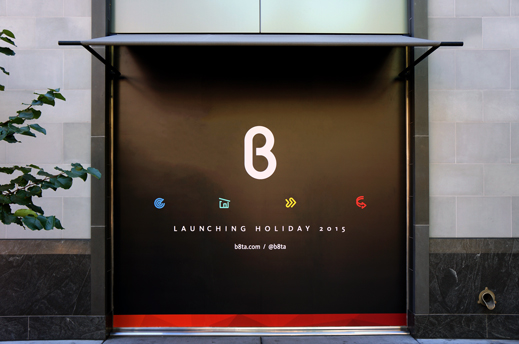In Palo Alto, a Brick-and-Mortar Store for Test-Driving the Latest High-Tech Gadgets
Buying a product in a brick-and-mortar store tends to devolve into an awkward dance these days. You settle on the very best vacuum at, say, Target, and then your little inner voice peeps up. What do Amazon’s reviewers have to say about it? What if it’s cheaper online? Chances are, you then check to make sure no sales associates are close by and whip out your phone for an intense Googling session.

This increasingly common practice is called showrooming, and, not surprisingly, physical stores don’t like it. But few have made an effort to win these lost sales back, aside from opening up online stores of their own.
A store opening this week in Palo Alto, California, believes it could have a solution. Each product in the new B8ta store—many of them new techie gadgets you probably last saw on a crowdfunding website like Kickstarter— sits next to an iPad showing real-time pricing across multiple online sites versus B8ta’s in-store cost. B8ta takes a small cut of each in-store sale, but overall the process is meant to be agnostic; customers are encouraged to order from whichever outlet they wish.
The point is to mimic the sales environment customers encounter online. Product makers set their own in-store price and can change it instantly, bringing e-commerce tactics like flash sales into the real world.
Even the products B8ta offers are normally constrained to the Internet. At launch, it will carry the Hexo+ and Lily drones ($1,349 and $799, respectively), which are built to autonomously film their users. An in-store mock kitchen will invite you to brew tea with the Internet-connected Teforia tea maker ($699). A space is even set aside to test the Internet’s farthest-fetched products like Avegant’s Glyph ($599), which is a pair of headphones with a strap that converts into a virtual-reality screen (see “The Future of Personal Entertainment, In Your Face”).
“We’re really looking for best-of-breed products. Things that catch your eye,” says B8ta CEO Vibhu Norby, who left connected home device maker Nest with three coworkers to found the company. “The end goal is anybody that’s making something interesting should be able to get space here.”
Since it’s time-consuming and expensive to make a debut in a big box store, B8ta lets companies apply to rent retail space, and they can then release a new product at the store within days. They also get instant feedback on sales performance and how many people stopped by their display.
It’s unsurprising that a store like B8ta would make its debut in a town filled with venture capitalists and startups. It sits just off downtown Palo Alto’s main drag, literally around the corner from the Apple Store. And, like that store, it displays gadgets out in the open on modern-looking tables, inviting customers to play around with them.
Yet while it may appear to fit in with Palo Alto’s techie vibe, B8ta will face at least one big challenge: convincing people they actually want connected devices—something that becomes even more challenging when you leave the extremely tech-conscious Bay Area.
Keep Reading
Most Popular
Large language models can do jaw-dropping things. But nobody knows exactly why.
And that's a problem. Figuring it out is one of the biggest scientific puzzles of our time and a crucial step towards controlling more powerful future models.
How scientists traced a mysterious covid case back to six toilets
When wastewater surveillance turns into a hunt for a single infected individual, the ethics get tricky.
The problem with plug-in hybrids? Their drivers.
Plug-in hybrids are often sold as a transition to EVs, but new data from Europe shows we’re still underestimating the emissions they produce.
Stay connected
Get the latest updates from
MIT Technology Review
Discover special offers, top stories, upcoming events, and more.